
The project (23IND09 MaritimeMET) has received funding from the European Partnership on Metrology, co-financed from the European Union’s Horizon Europe Research and Innovation Programme and by the Participating States
tHE cONSORTIUM

PTB is the German National Metrology Institute and two departments will contribute to this project.
Department 3.3, “Physical Chemistry”, covers a breadth of knowledge of reaction kinetics and developing laser spectrometers for treatable measurements of dynamic quantiles (pressure, temperature, mole fraction).
Department 3.4, “Analytical chemistry of the gas phase”, has in-depth experience in the development of spectrometers for different applications, including natural, emissions, and environmental monitoring through their experience on IR-spectrometric gas metrology, as well as experience in measurements of PN, particle mass and black carbon mass.

CMI the Czech Republic’s national metrology institute, specialises in ITS-90 realisation (-189 °C to 1800 °C), including contact and radiation thermometry. CMI has a strong industrial metrology focus, partnering with various organisations. Active in CCT and EURAMET TC-T, CMI have extensive experience leading WPs and participating in EMRP and EMPIR projects on temperature and humidity.
In WP2, CMI primary role is developing traceable calibration methods for Dynamic Gas temperature measurement. The gas mixture laboratory (WP1) boasts GC-MS, GC-TOF, and GC-PDD instruments, preparing over a hundred cylinders annually for metrological traceability in breath analysers and process gas chromatograph verification.

DFM is the Danish national metrology institute with 20+ years of experience in quantitative optical spectroscopy of molecules, including custom-made spectral fitting procedures. In addition, DFM has recently developed new compact field deployable spectrometers for onsite gas analysis, measurements relevant to the monitoring community. DFM will use this expertise and its laser facilities to support the work in WP1
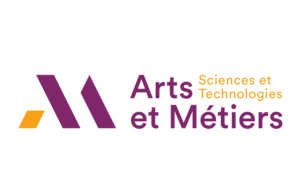
ENSAM is the French DI that develops and maintains the French standards for dynamic pressure metrology since 1981. It has shock tubes, chronometric shock tubes and fast opening for dynamic pressure calibration from 100 kPa to 5 MPa and a frequency range from 1 Hz to 30 kHz. ENSAM will contribute to WP2 by further developing its shock tube and fast-opening devices to measure dynamic pressure to ensure the traceability of the measurements up to 30 MPa and 100 kHz and reduce the uncertainties to meet the industry’s new requirements.

RISE the Swedish National Metrology Institute, has capabilities, expertise, and competence in dynamic pressure measurements and optical measurement techniques related to this project. RISE has a developed shock tube and can fully characterise dynamic pressure measurement systems in the range from 0.1 MPa to 30 MPa and frequency range from 0.5 kHz to 500 kHz. RISE will mainly contribute to WP2 by further developing its shock tube and applying a quantum-based method for simultaneous measurement of dynamic pressure and temperature to ensure the accuracy and reliability of the measurements and reduce the uncertainties to meet the industry requirements.

TUBITAK is the Scientific and Technological Research Council of Türkiye. TUBITAK is the National Metrology Institute (NMI) of Türkiye and operates under the umbrella of TUBITAK. TUBITAK has primary pressure standards from 10-4 Pa to 7 MPa. TUBITAK will contribute to the project under WP2 by further developing their drop-weight calibration device to improve the accuracy and reliability in the pressure range between the 5 MPa and 30 MPa to enable in-cylinder pressure sensor calibrations and including validation and characterisation of developed calibration and measurement methods.

VSL is the Dutch national metrology institute that develops and maintains the Netherlands’ primary standards for thermometry and optics (among many others).
In WP2, VSL will develop a thermometric radiation-based fibre-optic spectrometer reference standard for dynamic in-engine gas temperature measurements. Additionally, VSL will further develop its pulsed laser-based radiance facility to provide temporal and radiance traceability for characterising the reference standard.
In WP3, the Data Science and Modelling group at VSL will quantify the uncertainty of the prediction of the emission models.

VTT, the Technical Research Centre of Finland Ltd. is an impartial, fully state-owned, non-profit Research and Technology Organisation (RTO). Within VTT, MIKES Metrology serves as the National Metrology Institute (NMI) of Finland. VTT’s main activity will be to develop a new primary standard for dynamic pressure to reach the uncertainty requirement of 1 %. The dynamic pressure standard will be applied to characterise the performance of state-of-the-art cylinder pressure sensors used in engine testing at Wärtsilä to demonstrate improvements in measurement accuracy achieved through improved calibration methods (WP2). Moreover, VTT will contribute on the development of a good practice guide regarding dynamic pressure calibrations (WP4).
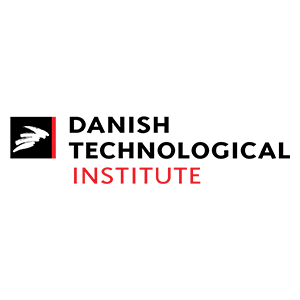
DTI is the Danish Technological Institute. DTI will provide engine test bed facilities where the combustion of alternative fuels (methanol and ammonia) can be tested for marine engine-like conditions. One heavy-duty (truck engine) cylinder is used for testing dual fuel and premixed combustion of alternative fuels. The engine will generate emission and operating data for emission modelling and machine learning activities and will serve as a platform for testing different novel and low-cost exhaust gas sensors.
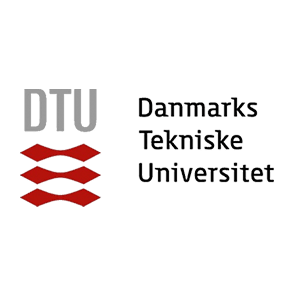
DTU is the Technical University of Denmark. In this project, DTU will further develop, characterise, and test the in-situ spectroscopy-based sensors and methods for simultaneous pressure and temperature measurements in a combustion chamber (WP2).
The activities will include emission measurements after the engine cylinder (WP1).
DTU’s high temperature/high-pressure facilities will be exploited for studying the influence of pressure and temperature on the performance of the sensors developed in this project.

FORCE is FORCE Technology. FORCE will perform accreted emissions measurements of PM at engine test bed facilities according to ISO8178. Measurements of BC will likewise be performed. Furthermore, continuous measurement of formaldehyde and methanol will be performed during the engine test of methanol using a PTR-ToF-MS, making it possible to detect smaller quantities of specific organic compounds with high time resolution in the exhaust gas.
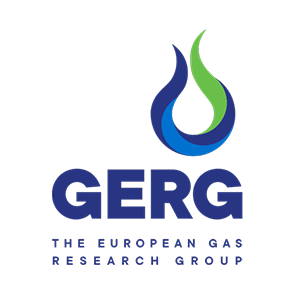
GERG (The European Gas Research Group) is the European Association representing the collaborative R&D needs of the European Gas Industry. Along with its member organisations, GERG works with the European energy community to develop innovative solutions connecting European gas infrastructure to the evolving energy system.
GERG coordinates corresponding efforts of its members on an EU level and membership includes TSOs, DSOs, major NG suppliers, universities, and international research institutes, as well as international standardisation organisations.
GERG partners with related organisations globally to ensure international alignment of its work and maximum effectiveness of its programmes.
Moreover, GERG has experience leading Dissemination and Communication activities in several EU projects.

Instrumatic develops and manufactures sampling systems and gas sensors/monitors for Continuous Emission Monitoring Systems (CEMS) for portable and fixed-installed monitoring systems. Instrumatic will contribute to developing a suitable dilution sampling system for PAS and low-cost sensors, besides participation in real-life testing.

LEC is an Austrian research institution for sustainable large-engine technologies. With its profound knowledge and extensive experience in predictive simulation and modelling of ignition, combustion, and emission formation, LEC will contribute to developing hybrid simulation models combining physics-based and machine learning algorithms
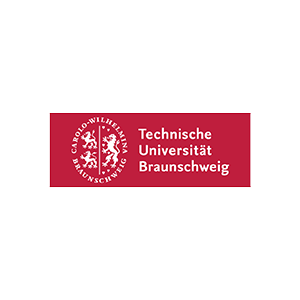
TUBS is the Technical University Braunschweig. The Institute of Internal Combustion Engines and Fuel Cells (IVB) is involved in this project.
TUBS is well experienced in experimental and theoretical engine investigations, including large bore engines.
TUBS will develop models for combustion and emissions involving machine learning algorithms.
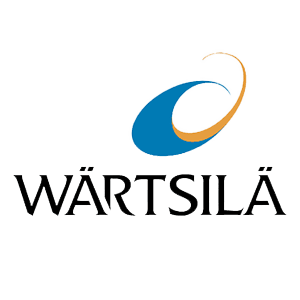
WÄRTSILÄ develops and manufactures power and energy solutions for the marine and stationary energy markets based on internal combustion engines and other power sources such as batteries.
Wärtsilä will contribute to the research by giving user perspective on the technologies and simulation models investigated.
Wärtsilä will also provide an opportunity to experiment with the investigated measurement technologies on appropriate laboratory engines and combustion research test rigs, such as Rapid Compression Expansion Machine and Optical Spray Combustion Chamber.

AMVALOR will provide ENSAM with personnel and equipment resources to achieve the project’s objectives of dynamic pressure references. The organisation also assists ENSAM in its business relationships with its customers. AMVALOR is an affiliated entity affiliated to beneficiary ENSAM.
tHE cOLLABORATORS
The “Measurement Intelligence” department at Siemens focuses on providing comprehensive solutions for the process industry. Their emphasis is on integrating process instrumentation, process analytics and digital solutions.
Key Focus Areas:
- Process Instrumentation: Measurement solutions for pressure, temperature, flow, level, and weight, complemented by positioners and communication devices.
- Process Analytics: Managing complex gas analyses and monitoring emission with innovative technology.
- Digital Solutions and Smart Applications: Enhancing process insights, improving plant operation, and enabling preventive maintenance.
- Novel products based on IoT and Soft Sensing leverage potential of AI to:
- Analyze process data and provide real-time insights.
- Optimize maintenance processes and minimize downtime.
- Promote sustainable processes, such as emissions monitoring and circular economy initiatives.
These approaches help companies increase efficiency and achieve their sustainability goals.

The R&D Team at PCB Piezotronics leads the design and development of piezoelectric sensing technologies for dynamic measurements across thousands of extreme-environment applications. The team will support WP2 through the development of traceable calibration methods for dynamic pressure sensors used in in-cylinder engine testing. With over 50 years of expertise, PCB Piezotronics is recognized for precision engineering and advanced metrological capabilities, producing rugged sensors designed for traceable, high-accuracy performance.
The Stakeholder Committee

TUBS is the Technical University Braunschweig. The Institute of Internal Combustion Engines and Fuel Cells (IVB) is involved in this project.
TUBS is well experienced in experimental and theoretical engine investigations, including large bore engines.
TUBS will develop models for combustion and emissions involving machine learning algorithms.

WÄRTSILÄ develops and manufactures power and energy solutions for the marine and stationary energy markets based on internal combustion engines and other power sources such as batteries.
Wärtsilä will contribute to the research by giving user perspective on the technologies and simulation models investigated.
Wärtsilä will also provide an opportunity to experiment with the investigated measurement technologies on appropriate laboratory engines and combustion research test rigs, such as Rapid Compression Expansion Machine and Optical Spray Combustion Chamber.

Instrumatic develops and manufactures sampling systems and gas sensors/monitors for Continuous Emission Monitoring Systems (CEMS) for portable and fixed-installed monitoring systems. Instrumatic will contribute to developing a suitable dilution sampling system for PAS and low-cost sensors, besides participation in real-life testing.

LEC is an Austrian research institution for sustainable large-engine technologies. With its profound knowledge and extensive experience in predictive simulation and modelling of ignition, combustion, and emission formation, LEC will contribute to developing hybrid simulation models combining physics-based and machine learning algorithms